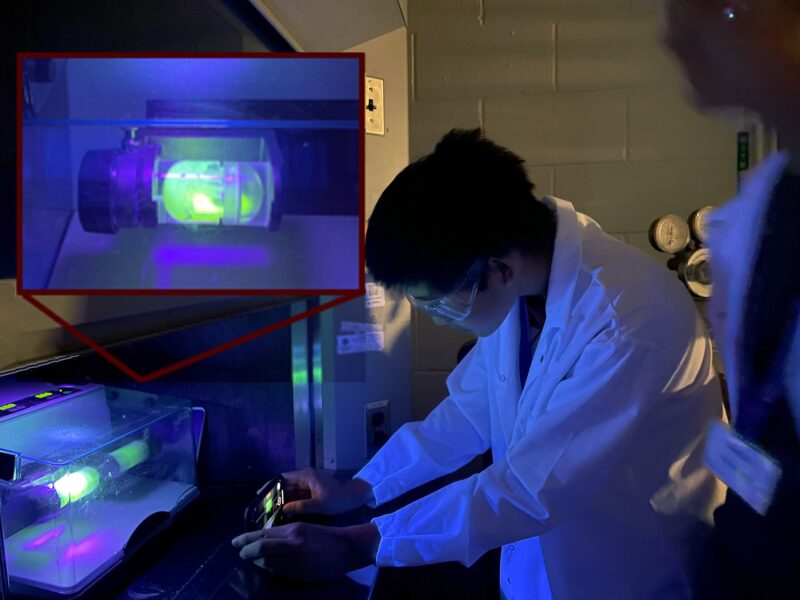Texas A&M System And Partners Among Semifinalists For NSF Engines Grant
A coalition between The Texas A&M University System, the Greater Houston Partnership’s Houston Energy Transition Initiative (HETI) and four other leading Texas research universities has been named a semifinalist for the National Science Foundation Engines program.
Universities, nonprofits, businesses and other organizations from U.S. states and territories will participate in the NSF Engines program, which is meant to increase the level of commercial investment in research and development activities across distinct geographic regions, while creating sustainable innovation ecosystems.
The Texas A&M University System, HETI, Rice University, Texas Southern University, the University of Houston and the University of Texas at Austin are among the institutions working on the proposed “Accelerating Carbon-Neutral Technologies (ACT) and Policies for Energy Transition” engine, which was among 34 semifinalists selected by 188 concept outlines.
The NSF plans to announce winners this fall. Each NSF Engine could receive up to $160 million in funding over 10 years.
“Texas A&M is proud to partner with the top institutions and energy leaders in the state of Texas to lead the greater Houston area to go from the Energy Capital of the World to the Energy Innovation Capital of the World,” said Chancellor John Sharp. “Texas A&M is a leader in energy innovation research, a top national public research institution and the largest university and largest engineering program in the nation.”
The proposed ACT engine aims to address the dual challenge of meeting increasing global energy demand while at the same time reducing greenhouse gas emissions. Part of the vision is to make Houston a global nexus for low-carbon energy leadership, technologies, products and services. The coalition said the engine would act as a hub for accelerating the global energy transition while ensuring demand for a clean energy sector workforce is met, creating strong economic growth.
“The Greater Houston Partnership and the Houston Energy Transition Initiative are committed to leveraging our industry and academic energy leadership to accelerate global solutions for an energy-abundant, low-carbon future,” said Jane Stricker, executive director of HETI. “Working collaboratively alongside industry and incredible research institutions like Texas A&M University, through the ACT Engine, will enable faster development and deployment of technologies critical to solving the dual challenge of providing more energy with less emissions, while also driving sustainable and equitable economic growth for our region.”
The NSF Engines competition spans key technology areas and societal and economic challenges highlighted in CHIPS and Science Act. President Joe Biden signed the act into law in August 2022, authorizing investments in innovative research that will advance the most innovative ideas in science and engineering at speed and scale.
“Each of these NSF Engines semifinalists represents an emerging hub of innovation and lends their talents and resources to form the fabric of NSF’s vision to create opportunities everywhere and enable innovation anywhere,” said NSF Director Sethuraman Panchanathan. “These teams will spring ideas, talent, pathways and resources to create vibrant innovation ecosystems all across our nation.”
Media contact: Megan Lacy, megan.lacy@tamu.edu





